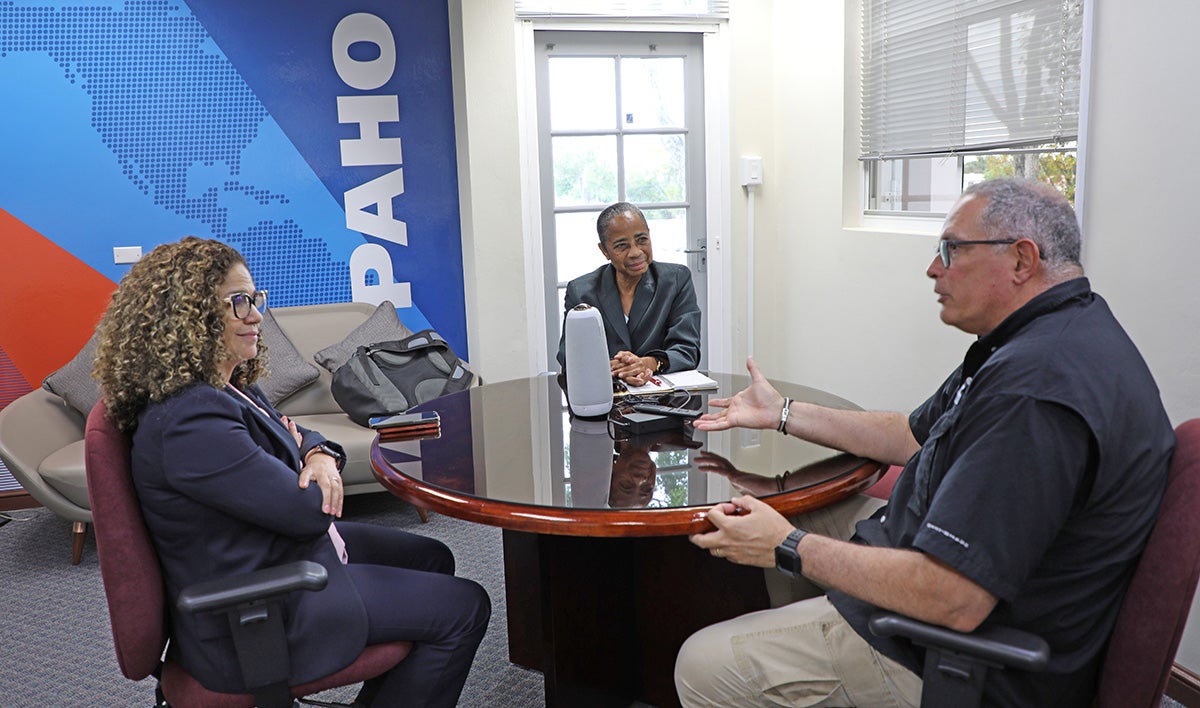
Bridgetown, Barbados – March 19, 2025 (PAHO). Maintaining healthy indoor air quality is critical to health and wellness for both health personnel and the public.
PAHO/WHO therefore supported Barbados and Antigua and Barbuda by providing training to Government staff who work in the Environmental Health Department, individuals with responsibility for Heating, Ventilation and Air-Conditioning (HVAC) systems, technical management, hospital and government buildings maintenance and infection control.
PAHO’s Department of Social and Environmental Determinants for Health Equity (DHE/CE) developed a guidance document to address Indoor Environmental Quality in Health Care Facilities, which provides guidance to Ministries of Health and officials in charge of environmental quality at health care facilities to discuss common challenges, including air quality, humidity, ventilation and mold. The instructor for the training was José Carlos Espino, Environmental Health Consultant.
Training was divided into two main components. The first phase - virtual Air Quality Training – comprised two four-hour sessions conducted on the topics ‘Indoor Air Quality in Institutional and Commercial Buildings’, hosted on February 4th and 6th; and ‘Indoor Air Quality in Healthcare Facilities,’ hosted a week later - February 11th and 13th.
The second phase, in-country training, involved on-site assessment and training with emphasis on health care facilities and other government buildings in Barbados from March 11th to 14th, and in Antigua and Barbuda from March 17th to 21st.
A total of forty staff are now better equipped to understand the indoor air quality assessment process which considers the environmental conditions of areas occupied by users and defined by the levels of physical, chemical and microbiological pollutants. Participants also utilized the instruments used for measurement of indoor environmental parameters and trained in the selection of suitable filters for air cleaning.
PAHO/WHO Representative for Barbados and the Eastern Caribbean Countries (ECC), Dr. Amalia Del Riego, described how the training assists with climate change and achieving good health. “Tackling climate change and air pollution together yields large human health benefits. WHO data show that nine in every 10 people breathe outdoor air which exceeds the WHO guideline limits for air pollutants. Policies to reduce air pollution, therefore, offer a win-win strategy for both climate and health, lowering the burden of disease attributable to air pollution, as well as contributing to the near- and long-term mitigation of climate change.”




